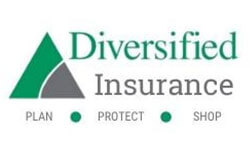What is Life Insurance Cash Surrender Value
Table of Contents
What is Life Insurance Cash Surrender Value
Are you familiar with the concept of life insurance cash surrender value? If not, you’re not alone. Many people are unaware of this important aspect of life insurance policies. In a nutshell, the cash surrender value is the amount of money you can receive if you decide to cancel or surrender your life insurance policy before it matures.
Understanding the cash surrender value is crucial because it can have a significant impact on your financial planning. By knowing the cash value of your policy, you can make informed decisions about whether to keep it, adjust it, or surrender it for a lump sum payout.
Understanding the Concept of Cash Surrender Value
Life insurance cash surrender value refers to the amount of money you receive from your insurance company when you surrender your policy before it reaches maturity. It is essentially the accumulated savings within your policy, which can be accessed if you decide to terminate the policy early.
The cash surrender value is different from the death benefit, which is the amount paid out to your beneficiaries upon your death. While the death benefit is designed to provide financial protection to your loved ones, the cash surrender value is more like a savings component within your life insurance policy.
How Cash Surrender Value is Calculated
The calculation of cash surrender value varies depending on the type of life insurance policy you have. There are two main types: whole life insurance and universal life insurance.
In the case of whole life insurance, the cash surrender value is determined by the premium payments you have made, the length of time you have held the policy, and the interest credited to the policy over time. Generally, the longer you have held the policy and the more premiums you have paid, the higher the cash surrender value.
On the other hand, universal life insurance policies offer more flexibility in terms of premium payments and death benefit amounts. The cash surrender value for universal life insurance is calculated based on the premium payments, interest credited, and any fees or charges associated with the policy.
Benefits of Life Insurance Cash Surrender Value
The cash surrender value of a life insurance policy can provide several benefits to policyholders. Here are a few key advantages:
1. Access to Funds: Surrendering your life insurance policy can provide you with a lump sum payout, which can be useful in times of financial need. Whether you want to pay off debt, cover medical expenses, or invest in a new opportunity, the cash surrender value can offer you immediate access to funds.
2. Flexibility: Unlike traditional savings accounts or investments, the cash surrender value of a life insurance policy allows for greater flexibility. You can decide how to use the funds based on your current financial situation and goals.
3. Potential for Growth: The cash surrender value of a life insurance policy has the potential to grow over time, thanks to the interest credited to the policy. This can provide you with an additional source of savings and potential returns.
Factors That Affect the Cash Surrender Value
Several factors can influence the cash surrender value of a life insurance policy. It’s important to understand these factors to have a clear idea of how your policy’s cash value may change over time. Here are a few key considerations:
1. Premium Payments: The amount and frequency of your premium payments have a significant impact on the cash surrender value. The more you contribute to your policy, the higher the cash value is likely to be.
2. Length of Time: The longer you hold your life insurance policy, the more time your cash surrender value has to accumulate. Time is a crucial factor in the growth of your policy’s cash value.
3. Interest Credited: The interest credited to your policy plays a crucial role in determining the cash surrender value. The higher the interest rate, the faster your policy’s cash value can grow.
Pros and Cons of Surrendering a Life Insurance Policy
Surrendering a life insurance policy is a decision that should not be taken lightly. It’s important to weigh the pros and cons before making a final decision. Here are some advantages and disadvantages to consider:
Pros of Surrendering a Life Insurance Policy:
- Immediate access to funds
- Freedom from premium payments
- No need to worry about policy maintenance
Cons of Surrendering a Life Insurance Policy:
- Loss of death benefit for beneficiaries
- Potential tax consequences
- Possible loss of life insurance coverage
Alternatives to Surrendering a Life Insurance Policy
If surrendering your life insurance policy is not the right option for you, there are alternatives to consider. These alternatives can help you access the cash surrender value without completely terminating the policy. Here are a few options:
1. Policy Loans: Some life insurance policies allow you to take out a loan against the cash surrender value. This way, you can access the funds without surrendering the policy.
2. Partial Surrender: Instead of surrendering the entire policy, you may be able to withdraw a portion of the cash surrender value while keeping the policy active. This can be a useful option if you need immediate funds but still want to maintain some level of coverage.
3. Reduced Paid-Up Option: Some policies offer a reduced paid-up option, which allows you to stop making premium payments while still keeping a reduced death benefit in force. This option can be beneficial if you no longer want to pay premiums but still want to maintain some level of coverage.
How to Access the Cash Surrender Value
If you decide to surrender your life insurance policy and access the cash surrender value, the process is relatively straightforward. Here are the typical steps involved:
- Contact your insurance company: Notify your insurance company of your intention to surrender the policy and request the necessary paperwork.
- Complete the surrender form: Fill out the required forms provided by the insurance company. These forms will ask for your policy information, personal details, and instructions for the payout.
- Submit the forms: Once you have completed the forms, submit them to your insurance company. Keep copies for your records.
- Receive the payout: After reviewing your request, the insurance company will process your surrender and issue the cash surrender value to you. The funds can be deposited directly into your bank account or sent to you via check.
Tax Implications of Cash Surrender Value
It’s important to consider the tax implications before surrendering your life insurance policy. The cash surrender value may be subject to taxation depending on various factors, such as the amount of gain in the policy and your tax bracket. Here are a few key points to keep in mind:
- If the cash surrender value is less than the total premiums paid, there is generally no taxable income.
- If the cash surrender value exceeds the total premiums paid, the excess may be subject to income tax.
- Surrendering a policy with a large cash surrender value can result in a significant tax liability.
It’s crucial to consult with a tax professional or financial advisor to fully understand the tax implications of surrendering your life insurance policy.
Conclusion and Final Thoughts
Understanding the concept of life insurance cash surrender value is essential for making informed financial decisions. The cash surrender value represents the accumulated savings within your policy, and knowing its calculation, benefits, and potential drawbacks can help you navigate the complexities of life insurance.
Whether you decide to surrender your policy, explore alternatives, or simply stay informed about the cash surrender value, it’s crucial to consider your individual circumstances and long-term financial goals. By doing so, you can ensure that you are making the best decision for yourself and your loved ones.
Remember, consulting with a financial advisor or insurance professional is always a wise step when dealing with complex financial matters, such as life insurance policies and cash surrender values. They can provide personalized guidance tailored to your specific needs and help you make the most informed decisions possible.




